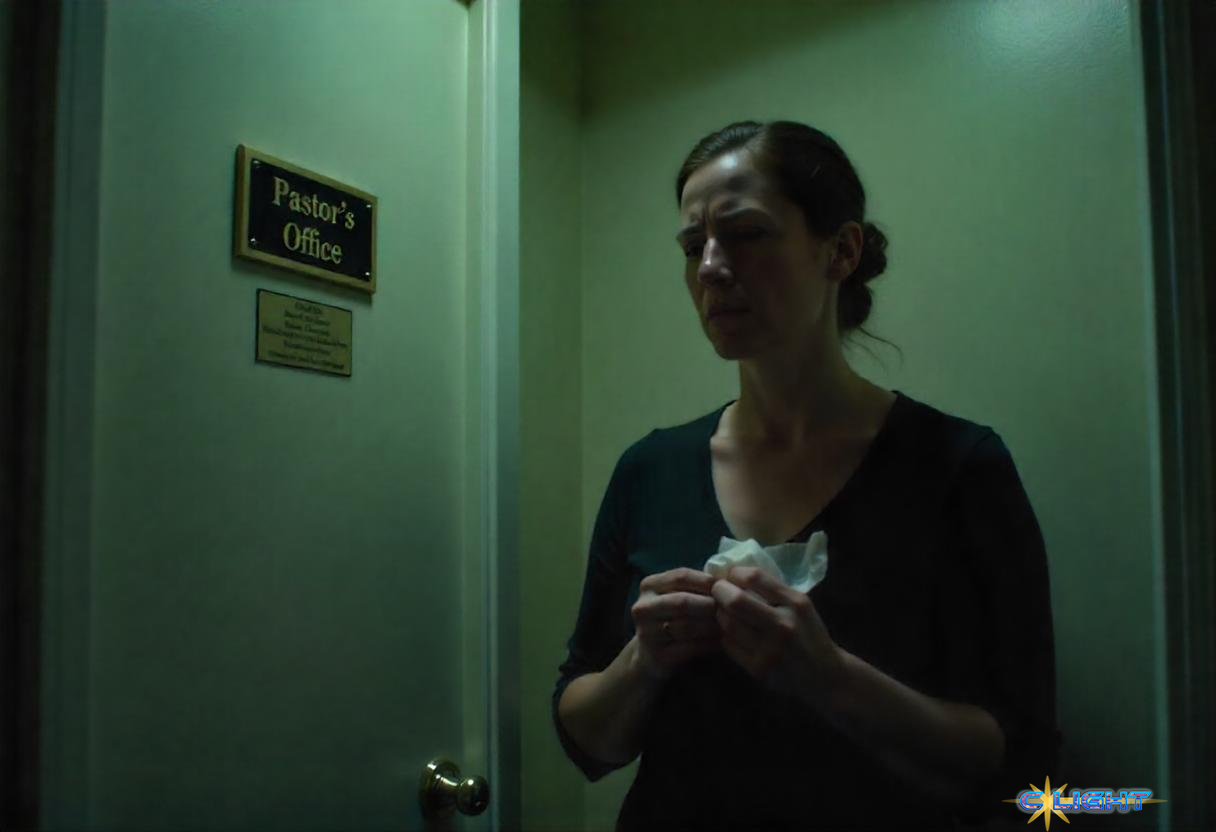The recent, courageous testimony in Religion News Service by an author detailing her experiences of sexual abuse within Christian institutions, and the subsequent institutional failures to address it, serves as a stark and painful reminder of a deeply entrenched societal wound. Her voice, breaking through layers of cultivated silence, calls us to confront an uncomfortable truth: the betrayal of trust by authoritative organizations is not an isolated phenomenon. Indeed, a disturbing pattern emerges when one looks across various sectors – from the hallowed halls of faith communities to the corridors of political power – a pattern where empathy is devalued, suffering is dismissed, and the vulnerable are often left unprotected, their cries for justice unheeded. This is not merely about individual failings, but about systemic cultures and, at times, even theological or political frameworks that enable such betrayals, creating a crisis of accountability that strikes at the heart of our professed societal values.
The Sanctuary of Silence – Abuse and Institutional Protectionism in Faith Communities
The RNS author’s account is a chilling illustration. She contrasts the (albeit delayed) due diligence of a public school board member investigating her decades-old abuse by a teacher with the pervasive culture of cover-up and denial she witnessed within church institutions. Her experiences are, tragically, not unique. They include pastors knowingly concealing a colleague’s conviction as a child sex offender; ministry leaders paying off, relocating, and then rehiring a serial predator who continues to be lauded; promises of accountability to survivors being broken; and denominational authorities promoting individuals despite credible accusations of sexual assault against them – accusations later proven in courts of law.
This resonates deeply with the experiences of many who have grown up within or observed religious systems, particularly those with autonomous structures like the Southern Baptist Convention. As one individual with decades of firsthand experience within the SBC noted, the very autonomy of individual churches can make centralized accountability nearly impossible. The convention itself has historically possessed little direct authority to enforce standards beyond “removing fellowship,” a largely symbolic gesture. Pastors, often placed on a “raised table of holy ground” and perceived by congregants as speaking “on behalf of God,” wield immense power. This dynamic can silence victims, who fear not being believed or, worse, being accused of attacking “God’s anointed.” Even well-meaning individuals within the system, like pastors aware of misconduct by peers, can find themselves with no safe or effective reporting mechanism, fearing accusations of personal vendettas if they speak out.
The difficulty of obtaining “factual evidence” for abuse, especially historical abuse, is another significant barrier. Victims may leave the church or move away, their trauma making re-engagement with the institution that failed them unbearable. Records may be lost or non-existent for acts that occurred in secret. This evidentiary challenge then becomes a convenient shield for institutions prioritizing self-preservation, allowing them to dismiss old claims or demand an often unattainable burden of proof. Superficial responses, like the vague “sin confession” movements within some evangelical circles in the late 1980s—where prominent figures admitted to unspecified “sins” without any real accountability, job loss, or voice given to potential victims—are seen by many as cynical exercises in public relations rather than genuine repentance or reform. The fear of “ruining careers” without “solid evidence” continues to hamstring efforts to create robust, independent reporting systems within some denominations, leaving an unknown number of victims, especially in smaller, more isolated churches where pastors “rule as kings,” to suffer in silence.

The Theology of Callousness? When “Empathy Becomes Sin”
How can institutions dedicated to spiritual care and moral guidance become sites of such profound betrayal? Part of the answer may lie in theological frameworks that, intentionally or not, devalue or pathologize the very human capacity for empathy. Consider the arguments presented in works like Joe Rigney’s “The Sin of Empathy: Compassion and Its Counterfeits” (publication date: early 2025). Such thinking, prevalent in some conservative Christian circles, distinguishes between what it deems “godly compassion” – supposedly tethered to an objective, divinely ordained “truth” (often defined by institutional leadership) – and “untethered empathy.” This latter form, characterized as mere emotional mirroring or vicarious feeling without prior filtering through a rigid doctrinal lens, is framed as problematic, potentially manipulative, and even sinful. It is accused of leading individuals and communities to condone sin, compromise biblical convictions, and be swayed by “woke” ideologies or the emotional appeals of “aggrieved groups.”
The dangerous implications of such a framework for addressing abuse are stark. If a victim’s profound emotional distress is viewed with suspicion as “untethered,” “manipulative,” or a deviation from “truth,” it becomes easier for institutional leaders to discredit their account. “Godly compassion,” under this warped logic, might then be redefined as protecting the institution’s “truth” – its reputation, its doctrines, the standing of its accused leaders – over providing empathetic care and justice to the survivor. This provides a “righteous” theological cover for the very patterns of denial, victim-blaming, and institutional self-preservation that allow abuse to fester. It can chill to the bone any individual within the community whose natural empathetic response urges them to stand with the victim, reframing their compassion as a spiritual failing or disloyalty. An abstract “truth,” defined by those in power, trumps the concrete suffering of the individual.

Echoes in the Halls of Power – Political Dismissal and the Devaluation of Suffering
This disturbing pattern of devaluing empathy and dismissing expressed harm is not confined to religious institutions. It finds a chilling echo in the political arena, as exemplified by the recent conduct of Senator Joni Ernst (R-Iowa). During a May 30, 2025, town hall, when constituents voiced visceral fears that proposed Medicaid cuts in President Felonious Punk’s “One Big Beautiful Bill Act” would lead to preventable deaths, Senator Ernst reportedly responded, “Well, we all are going to die.” She followed this with a sarcastic “apology” video, apparently filmed in a cemetery, where she mocked those who took her comments seriously and pivoted to religious salvation.
This incident is more than a political gaffe; it is a case study in the invalidation of legitimate public fear regarding life-and-death policy consequences. It demonstrates a deflection from accountability through cynicism and a profound lack of expressed empathy from a high-ranking public official. Such rhetoric aligns with a broader “anti-woke” political climate that often critiques what it perceives as “victim culture” or “excessive emotionalism” in policy debates, prioritizing fiscal arguments or ideological stances over direct human impact.
The parallel to how abuse survivors are often treated by institutions is undeniable. The dismissal of their pain, the trivialization of their experiences, the implication that they are overreacting or an inconvenience to more important agendas – these are common threads. If government leaders can so readily scorn public fears about dying due to policy changes, it raises grave concerns about their capacity for a compassionate, just, and serious response to any claims of harm or vulnerability, including direct accusations of abuse or systemic misconduct within governmental or government-funded institutions. It signals a political culture where empathy is a liability, and the suffering of certain populations is deemed an acceptable casualty of political or ideological goals.

The Common Denominator – Authoritative Failure and the Erosion of Trust
Whether in a local church hierarchy or the federal government, a common denominator emerges: authoritative organizations and the individuals leading them too often prioritize self-preservation, ideological conformity, or political expediency over the fundamental well-being and protection of the individuals they are meant to serve. The RNS author asked why Christian leaders deny claims and protect abusers; one might ask similar questions of political leaders who dismiss the dire consequences of their policies.
The tactics of dismissal, invalidation, and even victim-blaming are depressingly similar across these different institutional contexts. For those who have been harmed, or for those who are vulnerable and fear harm, the experience of being unheard, disbelieved, or mocked by those in power is profoundly damaging. It breeds cynicism, erodes trust in foundational institutions, and creates a chilling effect that discourages others from speaking out or seeking help. This is not just about specific policies or isolated incidents of misconduct; it is about the abdication of a fundamental responsibility of care and justice that underpins any legitimate authority.
Reclaiming Empathy, Demanding Accountability, and Standing for the Vulnerable
The devaluation of empathy, whether cloaked in theological arguments about “counterfeit compassion” or political rhetoric that dismisses human suffering as an inconvenient truth, is a dangerous, societal corrosive. It enables abuse, perpetuates injustice, and undermines the very fabric of a compassionate and accountable society. The poignant question from a 15-year-old neurodivergent youth, witnessing the corporate retreat from PRIDE amidst a hostile climate – “How can we have PRIDE if no one actually HAS PRIDE?” – could well be asked of institutions that profess care yet practice callousness.
This is not about “nailing anyone’s hide to the wall” for sport. It is about recognizing a dangerous pattern and insisting on a fundamental shift. It requires individuals, both within and outside these institutions, to heed the RNS author’s call to “speak up about what we see.” It demands systemic changes: robust, independent oversight mechanisms; transparent and victim-centered accountability processes in both religious and secular spheres; and a rejection of ideologies that seek to suppress or redefine our most basic human capacity for empathy.
The memory of those who fought against past tyrannies and for a more just world, as we are reminded around Memorial Day, is dishonored when we allow new forms of institutional betrayal and indifference to human suffering to take root. We must reclaim empathy not as a sentimental weakness, but as a foundational virtue for a just society and an essential guide for ethical leadership. We have a collective obligation to ensure that our institutions, whether sacred or secular, truly stand for and protect those who are unable to stand on their own. The alternative is a world where the cries of the vulnerable are met with silence, or worse, scorn – a world that none of us should deem acceptable.
Discover more from Clight Morning Analysis
Subscribe to get the latest posts sent to your email.










